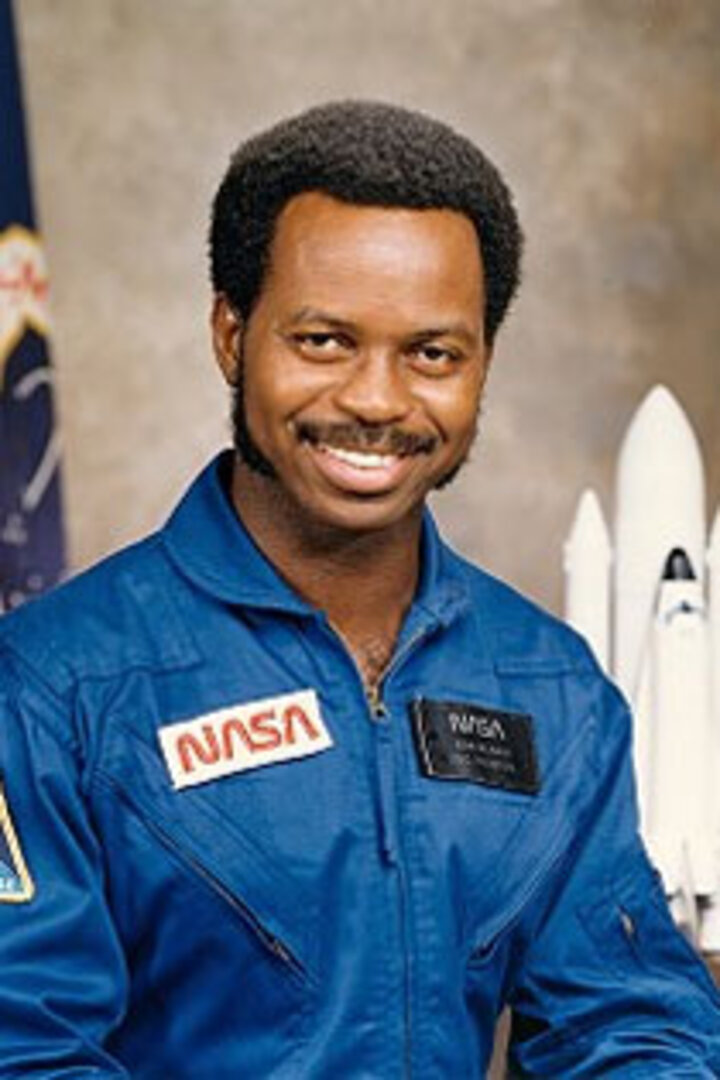Content

"Whether or not you reach your goals in life depends entirely on how well you prepare for them and how badly you want them."
- Ronald E. McNair, Ph.D.
Astronaut
Ronald Ervin McNair was born to Carl C. and Pearl M. McNair on October 21, 1950, in Lake City, South Carolina. Ron came into a modest existence, the son of an auto body repairman, who made less than $100/wk, and a high school teacher. The newborn came home to a house that had neither running water nor electricity. He was the second of three boys in the McNair family.
- He could read and write before entering school and was considered a mechanical genius, which earned him the nickname "Gizmo."
- He was the valedictorian of his high school class and was awarded a state scholarship to North Carolina Agricultural and Technical State University (NC A&T).
- In 1971 McNair graduated from NC A&T magna cum laude and was named a Ford Foundation Fellow and Presidential Scholar.
- He received a scholarship to continue his studies at the Massachusetts Institute of Technology (MIT).
- In 1976 McNair completed all requirements for the Ph.D. in physics and joined the Hughes Research Laboratories in Malibu, California as a staff physicist.
- Dr. McNair received an honorary doctorate of Laws from North Carolina A&T State University in 1978, the National Society of Black Professional Engineers Distinguished National Scientist Award in 1979, an honorary doctorate of Science from Morris College in 1980, and an honorary doctorate of Science from the University of South Carolina in 1984.
- In August of 1979, McNair completed the training and evaluation course for shuttle mission specialists and began working at the Shuttle Avionics Integration Laboratory.
- McNair was a saxophonist, and before the mission he worked with composer Jean Michel Jarre on a piece of music, Rendez-vous VI.
- He won the AAU Karate Gold Medal in 1976, five Regional Blackbelt Karate Championships, and numerous proclamations and achievement awards.
Even though Dr. McNair's awards and special recognitions are numerous, he will be most notably remembered as being among those who died on January 28, 1986, when the Space Shuttle Challenger exploded after its launch from the Kennedy Space Center in Florida. Dr. McNair was a mission specialist on that flight.